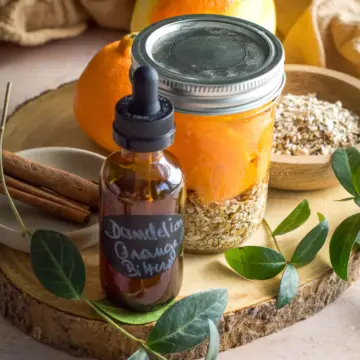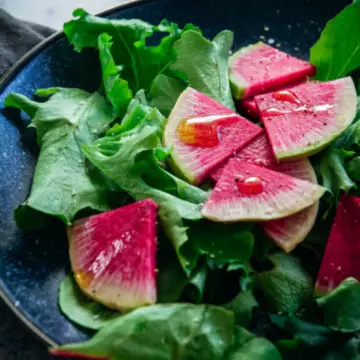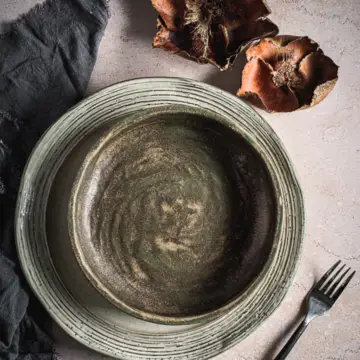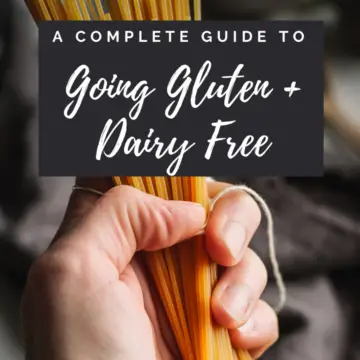By now we know that the gut microbiome is crucial to our health and well-being and plays a vital role in keeping the body in homeostasis. We are also very familiar with the importance of eating probiotic-rich foods, but what we put on our body can have a drastic effect on our skin's microbiome and our overall wellness.

What makes up our skin microbiome?
The skin is the the body's largest organ. It is also home to trillions of fungi, bacteria and archaea that live on it. An estimate states that our skin contains 1 billion bacteria per one square centimeter.
Our skin's ecosystem is first established upon entry into the world. The method of population happens depending on whether a baby was born via c-section or natural birth. If born naturally, the baby's skin will be populated with Lactobacillus species, which is found in the mother's vaginal canal. If born via c-section, the skin will be populated with bacteria residing on mother's skin.
Recent research has also uncovered that the once thought to be sterile placenta, may actually be home to bacteria which may prepare baby for life outside the womb throughout pregnancy. The bacteria found in the placenta, shows similarities between the bacteria found in the mouth which may indicate that bacteria travel from the mouth to placenta via the blood stream.
After the first inoculation, a baby's skin microbiome will be enriched based on those who come in contact with baby, the types of personal care products used, exposure to medications and also exposure to the natural world. "Timely and proper establishment of healthy skin microbiome during this early period might have a pivotal role in denying access to potentially infectious microbes and could affect microbiome composition and stability extending into adulthood."
What distrupts healthy skin mircobiome?
We live in a very different world than our ancestors did. In fact we don't have to go back even that far to see how much things have changed in even the last 200 years. Unfortunately we lack exposure to nature as we once had and our environment and overuse of anti-bacterial products has been responsible for drastically altering our skin's microbiome.
When our skin mircobiome is out of balance this can lead to many skin diseases such as psoriasis, eczema, contact dermatitis, acne, rosacea, dandruff, yeast and fungal infections, just to name a few.
1. Cosmetic use
For years of cosmetic use, I never really considered how the stuff I was putting on my skin would be impacting my health. They say it's safe right? And it smells so good! It's made for skin after all, right? Well, not so much. A lot of what goes into your makeup is not only affecting the skin, but is absorbed through skin and can in fact cause subtle changes which can potentially negatively impact us over time. Just to give you an example, some common eye shadows can contain Aluminium Powder, Bismuth Oxychloride, Coal Tar, Formaldehyde, Nano Particles, Parabens, Thimerosal and Talc. For a more in-depth read on these ingredients click here.
Consider the amount of products used on a near daily basis when just doing your makeup and also consider how some of these ingredients could play a substantial role in altering your skin's natural flora.
2. Personal care products
Aside from just make-up, think of the lotions and moisturizers that go on our skin. They cover nearly every part of the body. Some of the ingredients in conventional body lotions play a big role in disrupting the skin's microbiome and some of the ingredients are even considered to be endocrine distributors. Some of these ingredients are: Butylated Hydroxyanisole (BHA). DMDM Hydantoin, Fragrance + Parfum, Parabens, Retinyl Palmitate, Triethanolamine. For additional information on the effects of these ingredients, the link to the article.
Another one that's relatively well known for being harmful, is antiperspirant. Masked behind sexy or empowering TV commercials, is aluminum, the main ingredient in antipersiprant. It is responsible for killing bacteria living under your arm and also temporarily stooping sweat glands from producing sweat. The link between breast cancer and antiperspirant has not been quantitatively proven as this study describes. There are links but as of yet, no concrete evidence has been established.
3. Anti-bacterial soap
Hand washing and basic hygiene is something most people do automatically without much thought. But what we should be paying attention to is the type of soap we're using. Anti-bacterial soaps not only strip away any potentially harmful bacteria but they also strip away good ones. This article addresses how bacteria undergo a genetic mutation when they are exposed to triclosan, an ingredient contained in most anti-bacterial soaps. This mutation could cause bacteria to become resistant. "As bacteria develop a tolerance for these compounds there is potential for also developing a tolerance for certain antibiotics. This phenomenon, called cross-resistance, has already been demonstrated in several laboratory studies using triclosan, one of the most common chemicals found in antibacterial hand cleaners, dishwashing liquids and other wash products. "Triclosan has a specific inhibitory target in bacteria similar to some antibiotics," says epidemiologist Allison Aiello at the University of Michigan School of Public Health"
4. Food sensitivity
Unfortunately very few doctors connect skin issues with diet yet the proof is in the literature. This study addresses the importance of GI doctors working in conjunction with Dermatologists, in order to better address how diet could play a role in skin health.
Healing our guts will affect everything including skin health. Two of the biggest triggers that may be contributing factors to eczema, psoriasis, etc, are gluten and dairy. Many of us walk around with considerable skin issues but few of us associate diet with skin problems. If you want an in-depth article of gluten, you can check out this post.
If you think there may be a connection between food and skin issues, instead of opting for topical creams, it may be worth while to just play around with food first and see if an elimination diet may be right for you (I know, the more difficult option).
Switching products?
Aside from paying attention to what is in your products, consider starting to make a change towards more natural products entirely. I admit, it was not an over night flip for me. I started making some changes about 4 years ago but it wasn't until my second pregnancy that I decided to make the shift completely and even then it was gradual. It isn't cheap replacing all that you put on your body so it does take time. (Unless you're a minimalist, unlike me)
I'm a product junkie so I was not about to go without, but I did my research and slowly shifted my makeup and personal care products to more natural ones.
What I use
I have absolutely no affiliation with any of these brands but wanted to share with you what I like and what has worked for me. Since I'm a woman, I don't have much to offer in terms of men's personal care products though the deodorant brand (perhaps not the scent), body wash and moisturizer are unisex.
Makeup:
-
Eyeshadow pallet - Honest Beauty
-
Mascara - Honest Beauty
-
Blush - Honest Beauty
-
Bronzer - Honest Beauty
Bodywash - Jason Body Wash
Shampoo and Conditioner- Jason Shampoo and Conditioner
Body lotion - Everyone Body lotion
Face moisturizer: Kleem Organics
Eye Cream: Queen Bee Naturals
Deodorant: Scmidt's Vanilla Rose (Works incredibly well)
Get outside
Changing products to more natural ones is one way to ensure you're keeping the integrity of your skin's microbiome and enriching it. But getting outside and being in contact with nature, will do wonders. Just being outside in the elements doing whatever it is we're doing (i.e. gardening, mowing the lawn, pulling weeds, walking barefoot), exposes us to microbes, which we otherwise wouldn't be exposed to.
If you don't have access to green space, there is a personal care company called Mother Dirt, which focuses on products that enrich and repopulate the skin with healthy bacteria. It's a pretty novel idea but one that is necessary in today's overly sterile world, so check them out if you're interested.
Get sweaty
One of the best ways to repopulate skin mircobiome is through sweat! Interestingly enough, if you have a good diet, your sweat can actually function as food for your skin bacteria just the way prebiotics are good for your gut bacteria, sweat acts in the same way for your skin. Exercise is by far the best way to ensure you're working up a sweat a few times a week, or if you have access to a sauna. Either way, do't be afraid to get sweaty!
Bottom line is, it always comes back to balance. If you eat well, exercise and reduce the amount of chemicals that are stripping away your good bacteria, you'll be in good shape.





Comments
No Comments